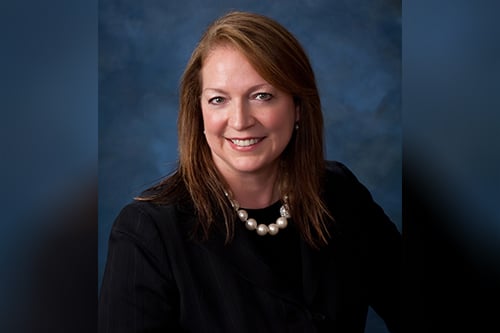

When property owners think of water damage, weather-related causes such as storms or flooding usually come to mind, and they take necessary measures to mitigate these risks. However, many tend to neglect another cause of water damage – defective plumbing – which could lead to major exposures and losses.
According to Lisa Lindsay (pictured), executive director of the Private Risk Management Association (PRMA), one in five homeowners in North America will experience some type of water damage each year, and the most common causes of loss are from are from plumbing devices such as water heaters, washing machines, ice makers, dishwashers, toilets – basically anything connected to a water source.
“Given the number of devices that come into play in the average modern household, it is essential to have a well-maintained and regularly inspected plumbing system,” Lindsay told Corporate Risk and Insurance. “Homeowners happily pay for a comprehensive home inspection before purchasing a home and should adopt that inspection mindset with regularity for many years after they first move in.”
Lindsay said that even a simple plumbing mishap can wreak damage that will challenge the most imaginative minds. Oftentimes, these plumbing failures may go undetected for an extended period, especially if the home is not regularly occupied, or the owner is on vacation.
Losses can be sorted into several categories: first is damage to the home and personal property (furniture, flooring, walls, valuables, art-work, and clothing) and potential mold remediation. There may also be personal expenses, such as deductibles, uncovered expenses or any home improvements. And finally, depending upon the extent of the water damage, the homeowner may need to relocate to a temporary residence, causing stress and disruption.
According to Lindsay, the following factors are behind an observed increase in home water damage claims:
Protecting the property from water damage
One of the most important steps to protect a property from water damage is to audit all devices connected to a water source and understand their vulnerabilities. Next, homeowners must identify how to prevent the fixture from failing or mitigate damage if it does fail, and then implement the best strategy to prevent or minimize the loss.
Some common failure points, according to Lindsay, are the water heater, washing machine supply lines, and sump pumps.
“If the homeowner’s water heater is 15 years old, they will likely be the one in five homeowners who suffer a water damage loss in a year,” she said. “In this case, they should proactively inspect and replace before they have a problem. A failed washing machine supply hose has an average age of eight to nine years. If the hose is more than five years old, not inspected regularly or replaced, the risk increases.
“Sump pumps should be on a regular maintenance plan. They should be connected to an alarm system that can notify the homeowner if they are not working due to failure or a power outage.”
To mitigate this, Lindsay said that homeowners may invest in a water security system, to add another layer of protection.
“One type is a sensor detection system that alerts the homeowner that water is flowing in an area it is not supposed to,” she said. “Another example is an automatic water shut-off system that automatically shuts off the water source if a leak is detected.”
She also advised homeowners to hire a home inspector to conduct a comprehensive home inspection, similar to the one they had when they purchased the property.
On the insurance side, homeowners should work closely with their insurance agent/broker to understand the clauses in their home insurance policy.
“Generally speaking, most policies should have coverage for sudden and accidental water damage from a plumbing failure, such as a burst pipe or a water heater rupture,” Lindsay said. “Particular attention should be paid to any additional coverage that can be purchased for mold remediation, coverage for back-up of sewers and drains and other policy exclusions.”
